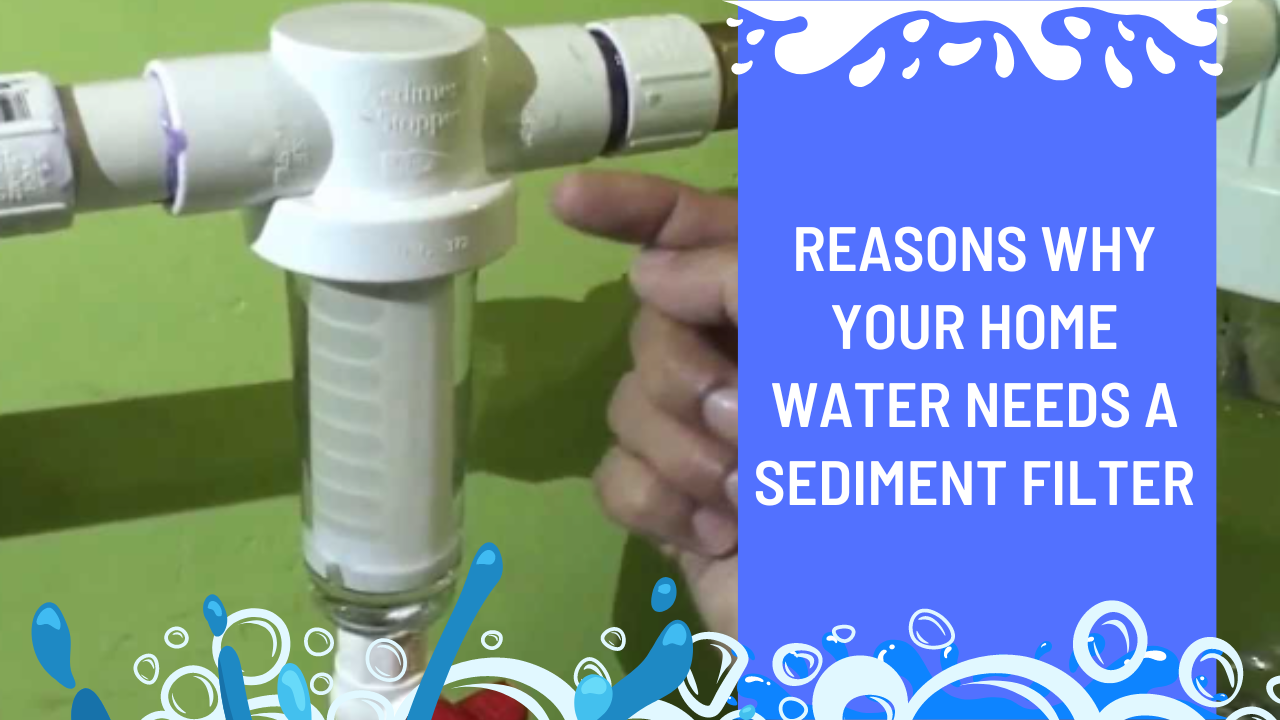A sediment filter is a device or system that removes suspended particles from water. Suspended particles are typically pieces of dirt, sand, rust, and other debris that can make the water look cloudy and unappealing. Sediment filters come in many sizes, shapes, and materials to best meet your needs. Installing a sediment filter in your home improves water’s taste, smell, and appearance by removing these particles. It can also protect appliances and fixtures from damage.
What Is A Sediment Filter?
This filter is designed to remove physical particles from the water, including sediment, rust, and silt. It does this by trapping these particles in a filter that allows only clean water to pass through. With a sediment filter, you can rest assured that the water you are drinking, cooking with, and bathing in is free of harmful chemicals and debris.
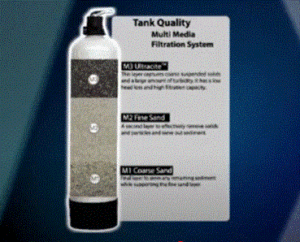
How Does A Sediment Filter Work?
A sediment filter is typically installed at a home’s water supply’s point of entry (POE). The critical function of a sediment filter is to remove sediment, dirt, and other particulate matter from your water before it enters the house. This helps ensure that you use clean, contaminant-free water in your home.
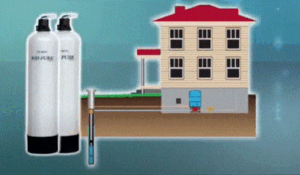
Most sediment filters are designed to remove particulate matter ranging in size from 5 microns. The larger the micron rating, the more particles it can filter out. Sediment filters typically consist of pleated or spun-polypropylene cartridges that trap and retain the dirt and other contaminants from your water supply system.
Sediment filters are often placed in series. This means that multiple units are. The first filter in the series typically has the highest micron rating, while the ones following it has progressively lower ratings. This helps ensure that even tiny particles are being removed.
Reasons Why Your Home Water Needs a Sediment Filter
A sediment filter installed in your home water system can also imp connected to increase filtration efficiency and allow more layers of protection from contaminants. Remove the taste of your tap water. Sediment filters trap impurities such as iron, manganese, and lead before they enter the water supply. This helps to ensure cleaner and better-tasting drinking water for you and your family.
- Using filters is environmentally friendly: A sediment filter is a great way to reduce the number of harmful contaminants in your water without worrying about destructive environmental impacts. Many water purifying systems involve chemicals, but filters provide an eco-friendly way to keep your family safe and healthy. The filters are made from natural materials that can be collected, reused, or recycled instead of using harsh chemicals that can cause harm to the environment. Additionally, since sediment filters don’t require electricity, they save energy and reduce your carbon footprint.
- Fewer expenses: Sediment filters help reduce the expenses associated with water. It can be expensive to replace tap water if it is contaminated with sediment or other particles, and a sediment filter can help you save on these costs. Furthermore, using a sediment filter will mean fewer repairs and replacements to your plumbing system or appliances, such as dishwashers and washing machines, that need clean water to function correctly.
- Much more convenient: A sediment filter can save time, energy, and money. Cleaning a sediment filter is much easier than cleaning your water system manually. Plus, if you choose an automatic backwashing system, the entire process becomes even more straightforward – you need to occasionally check the sediment filter and replace any dirty filters for optimal performance.
- Sediment filters set the stage for other filters: Using a sediment filter before any other water treatment system is essential. This is because sediment filters remove the dirt, rust, and other particles that can clog up the more expensive water purification systems like reverse osmosis systems. Without this first line of defense, your reverse osmosis or another filtration system may become clogged quickly and need to be replaced more often. In general, sediment filters can help extend the life of a water treatment system by preventing larger particles from entering your pipes.
What Are The Different Types Of Sediment Filters?
- Pleated filters: Pleated sediment filters, also known as depth filters, are the most commonly used type of sediment filter. These filters trap particles by forcing water to pass through layers of finely woven materials such as polyester or cellulose, which act like a sieve to capture suspended particles.
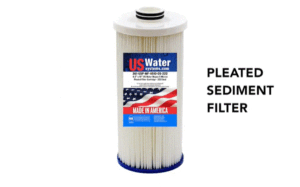
- Melt-blown filters: Melt-blown sediment filters use a type of plastic called polypropylene. The plastic is melted and then forced through tiny nozzles to form a thin, fibrous material that can trap suspended particles as small as five microns in size.
- String-wound filters: String-wound sediment filters consist of cotton or synthetic yarn wound around a cylinder, creating a porous material that can trap suspended particles. These filters are very efficient at trapping large particles such as rust or sand, and they are also easy to clean and reuse.
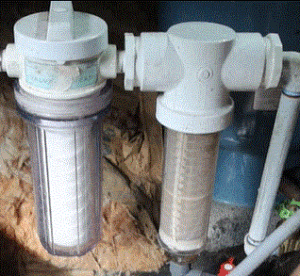
- Bag filters: Bag filters are made from fabrics such as nylon, polyester, or cotton, and they capture larger particles such as dirt and scale. These filters can also trap fine particles such as clay or silt. Bag filters are typically more expensive than pleated or string-wound sediment filters, but they are highly efficient at removing suspended solids from water.
- Spin-down filters: Spin-down sediment filters are similar to bag filters but have an added centrifugal force that helps trap and remove suspended solids from water. These filters can be used to trap both small and large particles, making them an excellent choice for those who need more filtration power than pleated or string-wound filters can provide.
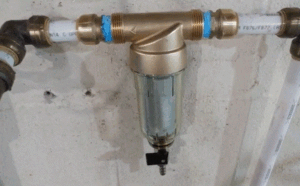
FAQs
Will a water filter remove bacteria?
No, sediment filters are designed to remove solid particles such as dirt, sand, and rust. They cannot remove bacteria or other contaminants from the water. For this purpose, you will need a whole house filter system with both a sediment filter and a carbon filter.
Will a water filter soften hard water?
A sediment filter on its own will not soften hard water. Still, several water filter systems combine a sediment filter and a water softening system. A sediment filter removes particulates such as dirt and rust from your home’s water supply. In contrast, the water softener removes the minerals that make the water hard (calcium and magnesium).
Does scheme water need filtering?
Though most municipal water systems are safe to drink, there are still benefits of using a sediment filter. Tap water often contains particulates and contaminants that can affect the quality and taste of your drinking water. These might include dirt, sand, rust, lead, chlorine, pesticides, herbicides, and other chemicals that can be hazardous to your health.
What does a 0.5-micron water filter remove?
A 0.5-micron water filter removes particles as small as 0.5 microns from your home’s water supply. These tiny particles include sediment, rust, dirt, and other contaminants that can cause discoloration, taste, and odor problems in your drinking water. This filter is highly effective for trapping even the tiniest particles, making it ideal for homes with well water or other sources that may contain more sediment.
Do I need a sediment filter on city water?
Even if your home is supplied by municipal water, you may still need a sediment filter. While city water usually meets safety standards, it can contain some particles that are best filtered out. Typical impurities in city water include dirt, rust, and other sediments from the pipes or treatment facility. These sediments are corrosive and can damage your plumbing and home appliances over time.
What water filter should I get?
The best sediment filter for your home ultimately depends on the specific needs of your water source. It is essential to consider the size of particles that need to be filtered out and whether you’re looking for a point-of-entry (whole house) system or a point-of-use (faucet, shower head, etc.) system. It is also essential to consider the flow rate of the water filter and how often you need to change its filter media.
Conclusion
Installing a sediment filter in your home is an effective way to ensure that you have clean, safe, and great-tasting water. By doing so, you can also prolong the life of your home’s appliances and fixtures. Investing in a quality sediment filter is an investment that will pay off in the long run. Be sure to consider all options when looking for a sediment filter to find one that best suits your needs. You can enjoy clean and great-tasting water for years with the right sediment filter.

Meet Jeffrey B Roberts, your dedicated guide into the realm of water science and technology. As a hydro biologist with an insatiable curiosity, Jeffrey’s journey has been one of unraveling the mysteries of water systems and advocating for clean, safe water for all.
With an academic background steeped in the sciences, Jeffrey’s passion lies at the crossroads of science, technology, and nature. A deep fascination with plants and genetics has not only enriched their understanding of aquatic ecosystems but has also propelled them into the world of water softening solutions.
Believing that clean water is a basic human right, Jeffrey’s writing transcends the technicalities, making the intricate world of water softening accessible to all. Through their blog, they ardently share insights, tips, and breakthroughs, empowering readers to make informed decisions about their water quality.
Beyond his role as a prolific writer, Jeffrey is a respected figure in the hydronics industry education. With years of hands-on experience, they serve as an adjunct professor, nurturing the next generation of experts at the Thaddeus Stevens College of Technology. His involvement on the Technical Advisory Board further cements their dedication to pushing the boundaries of innovation in water technology.
